Filter by
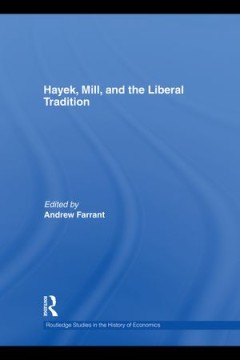
Hayek, Mill and the Liberal Tradition
This book considers the relationship between Hayek and Mill, taking issues with Hayek’s criticism of Mill and providing a broader perspective of the liberal tradition. Featuring contributions from the likes of Ross Emmett, Leon Montes and Robert Garnett, these chapters ask whether Hayek had an accurate reading of the ideas of Mill and Smith, as well as considering themes such as sympathy and …
- Edition
- -
- ISBN/ISSN
- 9780415779340
- Collation
- -
- Series Title
- -
- Call Number
- 650
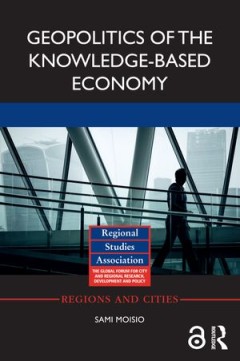
Geopolitics of the Knowledge-Based Economy
We live in the era of the knowledge-based economy, and this has major implications for the ways in which states, cities and even supranational political units are spatially planned, governed and developed. In this book, Sami Moisio delves deeply into the links between the knowledge-based economy and geopolitics, examining a wide range of themes, including city geopolitics and the university as …
- Edition
- -
- ISBN/ISSN
- 9781317587767
- Collation
- -
- Series Title
- -
- Call Number
- 650
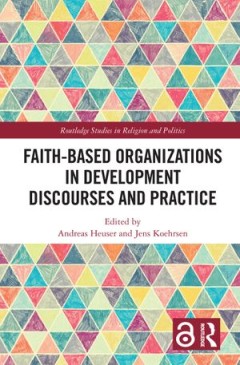
Faith-Based Organizations in Development Discourses and Practice
Exploring faith-based organizations (FBOs) in current developmental discourses and practice, this book presents a selection of empirical in-depth case-studies of Christian FBOs and assesses the vital role credited to FBOs in current discourses on development.Examining the engagement of FBOs with contemporary politics of development, the contributions stress the agency of FBOs in diverse context…
- Edition
- -
- ISBN/ISSN
- 9781000734249
- Collation
- -
- Series Title
- -
- Call Number
- 650

Fair and Equitable Benefit-Sharing in Agriculture (Open Access) : Reinventing…
This book explores the emergence and development of the legal concept of fair and equitable benefit-sharing, and its application in agriculture.Developed in the 1990s, the concept of fair and equitable benefit-sharing has been deployed in an ever-wider variety of international instruments, including those on biodiversity, climate change and human rights. A lack of clarity persists, however, on …
- Edition
- -
- ISBN/ISSN
- 9780429584183,
- Collation
- -
- Series Title
- -
- Call Number
- 650
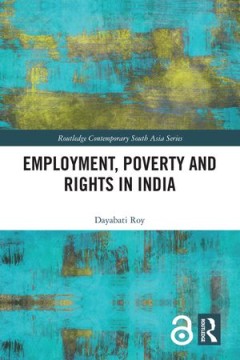
Employment, Poverty and Rights in India
In comparison to other social groups, India’s rural poor – and particularly Adivasis and Dalits - have seen little benefit from the country’s economic growth over the last three decades. Though economists and statisticians are able to model the form and extent of this inequality, their work is rarely concerned with identifying possible causes.Employment, Poverty and Rights in India analys…
- Edition
- -
- ISBN/ISSN
- 9781351065412
- Collation
- -
- Series Title
- -
- Call Number
- 650
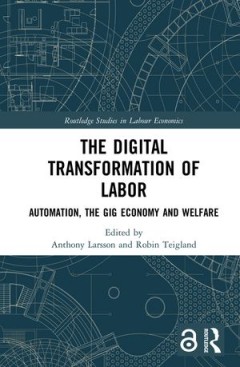
The Digital Transformation of Labor : Automation, the Gig Economy and Welfare…
Through a series of studies, the overarching aim of this book is to investigate if and how the digitalization/digital transformation process causes (or may cause) the autonomy of various labor functions, and its impact in creating (or stymieing) various job opportunities on the labor market. This book also seeks to illuminate what actors/groups are mostly benefited by the digitalization/digital…
- Edition
- -
- ISBN/ISSN
- -
- Collation
- -
- Series Title
- -
- Call Number
- 650
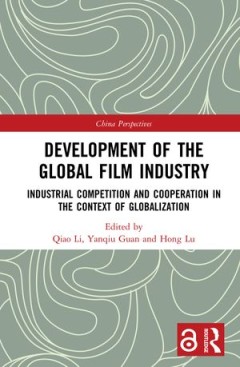
Development of the Global Film Industry : Industrial Competition and Cooperat…
The global film industry has witnessed significant transformations in the past few years. Regions outside the USA have begun to prosper while non-traditional production companies such as Netflix have assumed a larger market share and online movies adapted from literature have continued to gain in popularity. How have these trends shaped the global film industry? This book answers this question …
- Edition
- -
- ISBN/ISSN
- 9781000092424
- Collation
- -
- Series Title
- -
- Call Number
- 650
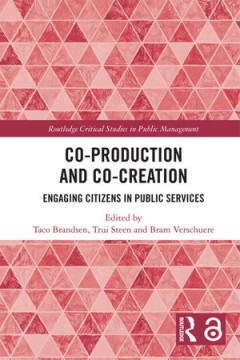
Co-Production and Co-Creation : Engaging Citizens in Public Services
Co-production and co-creation occur when citizens participate actively in delivering and designing the services they receive. It has come increasingly onto the agenda of policymakers, as interest in citizen participation has more generally soared. Expectations are high and it is regarded as a possible solution to the public sector’s decreased legitimacy and dwindling resources, by accessing m…
- Edition
- -
- ISBN/ISSN
- 9781351792578,
- Collation
- -
- Series Title
- -
- Call Number
- 650
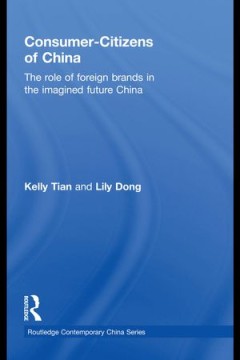
Consumer-Citizens of China : The Role of Foreign Brands in the Imagined Futur…
This book presents a comprehensive examination of Chinese consumer behaviour and challenges the previously dichotomous interpretation of the consumption of Western and non-Western brands in China. The dominant position is that Chinese consumers are driven by a desire to imitate the lifestyles of Westerners and thereby advance their social standing locally. The alternative is that consumers reje…
- Edition
- -
- ISBN/ISSN
- 9780415553490
- Collation
- -
- Series Title
- -
- Call Number
- 650
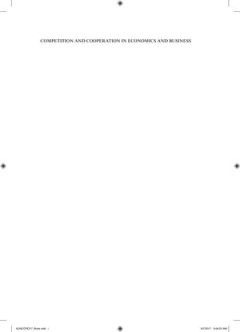
Competition and Cooperation in Economics and Business
Asia and the Pacific have become the growth engine of the world economy with the contribution of two-third of the global growth. The book discusses current issues in economics, business, and accounting in which economic agents, as individuals, entrepreneurs and professionals, as well as countries in the Asia and Pacific regions compete and collaborate with each other and with the rest of the gl…
- Edition
- -
- ISBN/ISSN
- 9781138626669
- Collation
- -
- Series Title
- -
- Call Number
- 650
 Computer Science, Information & General Works
Computer Science, Information & General Works  Philosophy & Psychology
Philosophy & Psychology  Religion
Religion  Social Sciences
Social Sciences  Language
Language  Pure Science
Pure Science  Applied Sciences
Applied Sciences  Art & Recreation
Art & Recreation  Literature
Literature  History & Geography
History & Geography